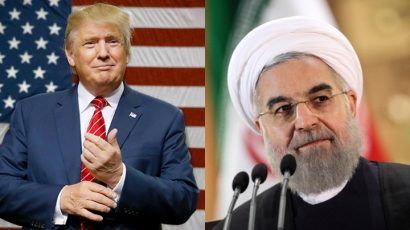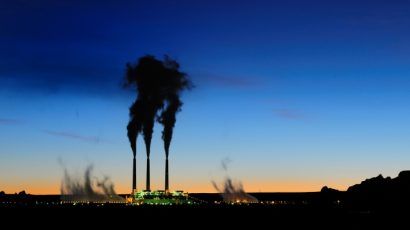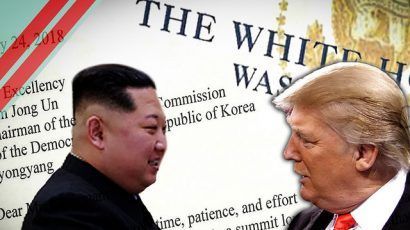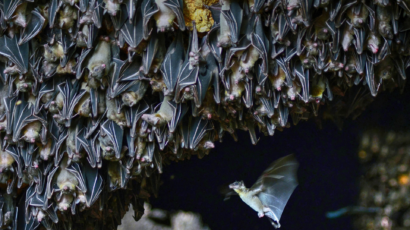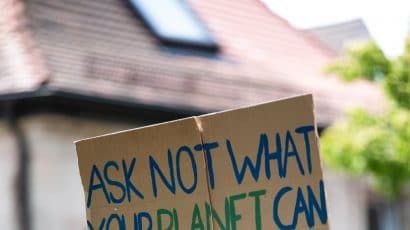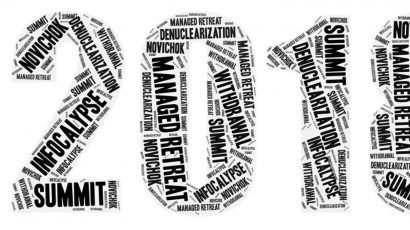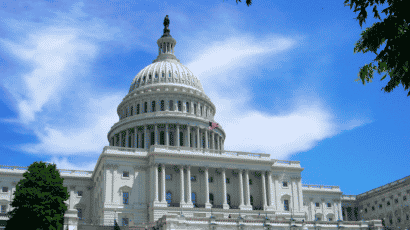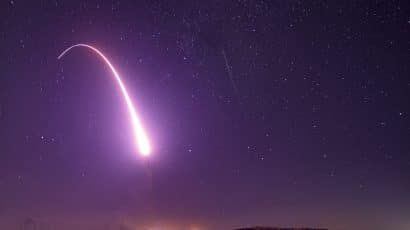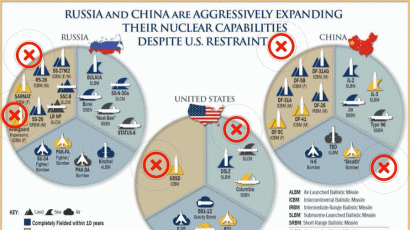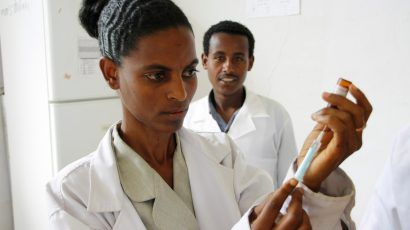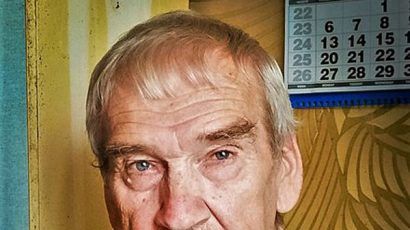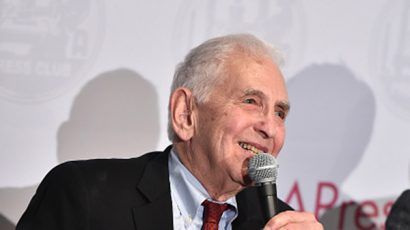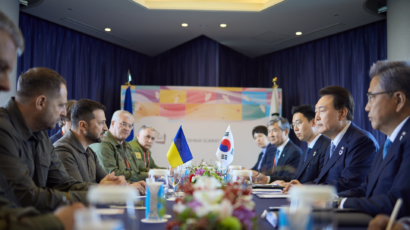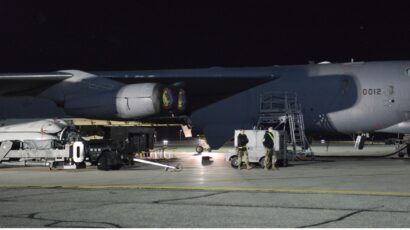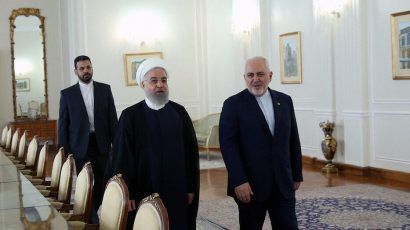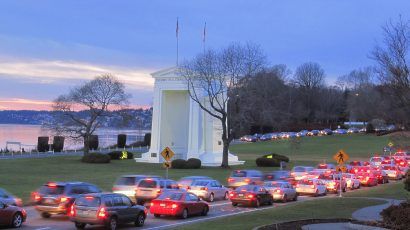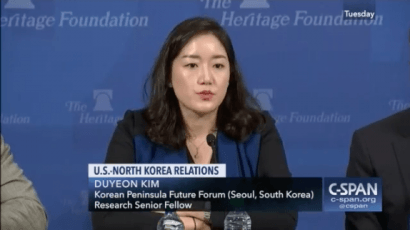Search results for trump
By , “] The US decision to withdraw from the Iran nuclear deal (known officially as the Joint Comprehensive Plan of Action, or JCPOA) has created an increasingly tense situation throughout the Middle East. After withdrawing from the JCPOA, the United States has embarked on a “maximum pressure” campaign that includes economic sanctions aimed at … Continued
Bloomberg donates $500 million to help end coal
The former New York City mayor pledges half-a-billion dollars to help close every coal-fired power plant in the US, and stop growth of natural gas.
A conversation about the North Korea summit with Sig Hecker
Siegfried Hecker talks about his first-hand interactions with North Korean nuclear scientists, what went wrong in past dealings with Kim dynasty, and the best possible outcome of the Trump/Kim summit, in a 27-minute conversation with Lynn Eden of the Bulletin of the Atomic Scientists’ Science and Security Board.
US-Russian space cooperation: a model for nuclear security
Steps Washington and Moscow took to transform their space rivalry into cooperation can serve as a model for working together to help prevent nuclear terrorism.
The US government cancels DEEP VZN, a controversial virus-hunting program
After doubling down on the controversial strategy of hunting for new animal viruses that could pose pandemic risks before they caused outbreaks, the US government quietly shuttered a program meant to find thousands of new pathogens.
Dems new climate plan: Fix our failing infrastructure? Check. Racial justice? Check.
The Democrats have a new climate plan that ticks all the boxes, and doesn’t entirely depend on the marketplace.
Six words that defined 2018
A brief guide to some of the key terms found in the Bulletin's coverage of events this year, with a few suggestions for deeper dives.
Neglecting nuclear security in the 2016 election
Two interns wonder why they seem to be more concerned than the 2016 presidential candidates about nuclear proliferation.
If 167 hearings didn’t prepare Congress for the COVID pandemic, what will?
A Georgetown University researcher counted all the times Congress held hearings on emerging infectious diseases between 1995 and 2019. Unfortunately, the 167 hearings Congress held didn't seem to prepare the United States to deal with COVID-19.
US defense to its workforce: Nuclear war can be won
Ronald Reagan and Mikhail Gorbachev once said that “a nuclear war cannot be won and must never be fought.” Yet the US defense leadership’s methodical messaging to promotes the perception that a nuclear war can be won and fought. Given the risk to humankind, this messaging warrants a spotlight, especially given the current crisis in Ukraine.
The anatomy of a STRATCOM disinfographic
When United States Strategic Command posted an infographic about nuclear weapons on Twitter, the Bulletin took careful note. The graphic is confused—not only about when to use bold typeface, but also about the facts.
From Africa to America, lack of public trust makes disease outbreaks worse
What do Ebola in Congo and measles in the United States have in common?
A posthumous honor for the man who saved the world
To celebrate that today is not the 35th anniversary of World War III, the man who helped avert an all-out nuclear exchange between Russia and the United States on September 26, 1983 was honored in New York with the $50,000 Future of Life Award. At a ceremony at the Museum of Mathematics in New York, … Continued
Daniel Ellsberg on dismantling the doomsday machine
Since the 1970s, Ellsberg has been deeply involved in efforts to reduce world nuclear arsenals and eventually eliminate them altogether. He and and Bulletin editor in chief John Mecklin spoke at length about how the danger of nuclear weapons might be conveyed more effectively to the general public. What follows is an edited transcript of parts of that wide-ranging conversation.
Watching Ukraine, South Korea and Japan eye nuclear weapons. Here’s what the US should do.
Officials in South Korea and Japan increasingly believe nuclear weapons would help them avoid being the next Ukraine. But they don't need them, an expert on Northeast Asia explains.
Nuclear Notebook: How many nuclear weapons does the United States have in 2022?
This Nuclear Notebook examines the status of the US nuclear arsenal, which remained roughly unchanged in the last year, with the Defense Department maintaining an estimated stockpile of approximately 3,708 warheads. Of these, only about 1,744 warheads are deployed, while approximately 1,964 are held in reserve. Additionally, approximately 1,720 retired warheads are awaiting dismantlement, giving a total inventory of approximately 5,428 nuclear warheads. Of the approximately 1,744 warheads that are deployed, 400 are on landbased intercontinental ballistic missiles, roughly 944 are on submarine-launched ballistic missiles, 300 are at bomber bases in the United States, and 100 tactical bombs are at European bases.
New poll: Iranians are souring on the nuclear deal and don’t want a new one
When it comes to dealing with the United States, there is broad alignment between what the Iranian people want and what their government is doing.
Another chance to step up: Canada and the Nuclear Ban Treaty
The recent G7 summit in Quebec marks one of the lowest points in the history of the relationship between Canada and the United States. The war of words there between President Donald Trump (and his advisers) on the one hand, and Prime Minister Justin Trudeau on the other, followed a growing disagreement over the terms … Continued
Duyeon Kim on outcomes of the North Korea summit
In the lead-up to the June 12 summit between the US and North Korea, Bulletin columnist Duyeon Kim joined a panel of experts to discuss the outcomes they prefer, the ones they expect, and what happens after everyone goes home.
